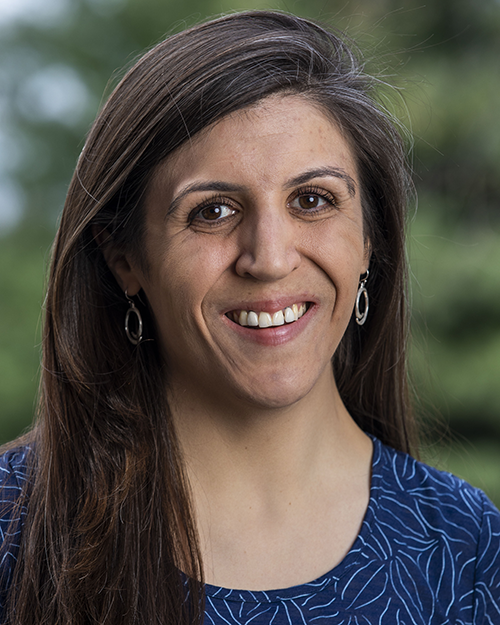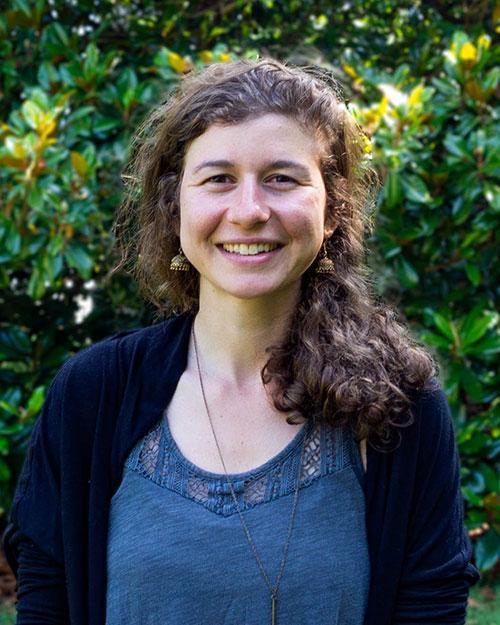DEIJ Conversations: Prioritizing Perspectives
What we learn when we prioritize the perspectives of seven minoritized students in a sociotechnical engineering course
December 2, 2022
1:00 - 2:30 PM
Joyce Cummings Center, Room 280
Coffee and donuts will be provided courtesy of the Center for Engineering Education and Outreach.
Join Research Assistant Professor Chelsea Andrews and Postdoctoral Research Scholar Desen Ozkan for a discussion of their recent work:
"The social/technical dualism in the engineering curriculum leaves students ill-prepared to tackle real-world technical problems in their social, economic, and political contexts (Cech, 2013; Faulkner, 2007; Trevelyan, 2010, 2014). Increasingly, students have expressed a desire for their technical courses to show the interplay between social and technical considerations (Leydens & Lucena, 2017), but they have few opportunities to develop these sociotechnical ways of thinking. Instead, students are left to infer engineering as technically neutral through the instructional decisions that make up an engineering curriculum (Cech, 2013; Trevelyan, 2014).
For two years, we have worked to revise ES-2, an introductory engineering computing class, to include sociotechnical dimensions of engineering–incorporating considerations of power and inequity and the potential for harm inherent in technology. Spring 2023 will be the third implementation of this revision. In this talk, we will discuss notions of sociotechnical engineering education, the sociotechnical revision project in ES-2, and the narratives of seven minoritized students who elected to be interviewed after the first revision implementation. The insights from the seven students are critical to attend to as we continue to revise and scale up our sociotechnical integration project. Finally, we will discuss how the integration model we have developed for ES-2 can be adapted and utilized to add sociotechnical considerations to other Tufts courses that are currently considered to be purely technical."
About the speakers:

Chelsea Andrews, EG17
Chelsea Andrews is a Research Assistant Professor at the Center for Engineering Education and Outreach (CEEO). She designs and studies lessons and instructional supports to deepen and sustain elementary to undergraduate students’ mechanistic, sociotechnical, and design process reasoning. Her current NSF-funded research projects focus on (1) elementary student reasoning in intentionally facilitated sociotechnical design conversations and (2) the evolution of undergraduate students’ sociotechnical literacy in a first-year computing course. She has a PhD in Engineering Education from Tufts, M.S. in Civil Engineering from MIT, and BS in Ocean Engineering from Texas A&M University. She has taught courses for undergraduate engineering students, undergraduate and graduate education students, and courses for in-service K-12 educators.

Desen Ozkan, E13
Desen Ozkan is a Postdoctoral Researcher at the Center for Engineering Education and Outreach (CEEO) and the Institute for Research on Learning and Education (IRLI). Her primary focus is on interdisciplinary learning as it relates to broader institutional, political-economic, and historical contexts. Her recent research, funded by Tufts CREATE Solutions, has comprised a case analysis of economic and community impacts from different offshore wind foundation structures. She completed her PhD in engineering education at Virginia Tech and her bachelor's in chemical engineering at Tufts. With the CEEO, she works on an NSF-funded sociotechnical engineering education project to integrate sociotechnical thinking into the first-year engineering course, ES-2 through Equity Learning Assistants (ELAs). Through IRLI, she has co-facilitated IRLI Start, IRLI Sumer Scholars, and a CELT Learning Community on Assessment and Equity. She has taught ENE-010, Deconstructing Engineering Design, STS-010, a reading lab on 'Learning’ that centers on sociopolitical histories of STEM education, and is currently teaching CS-150 Data and Power: Deconstructing Surveillance.